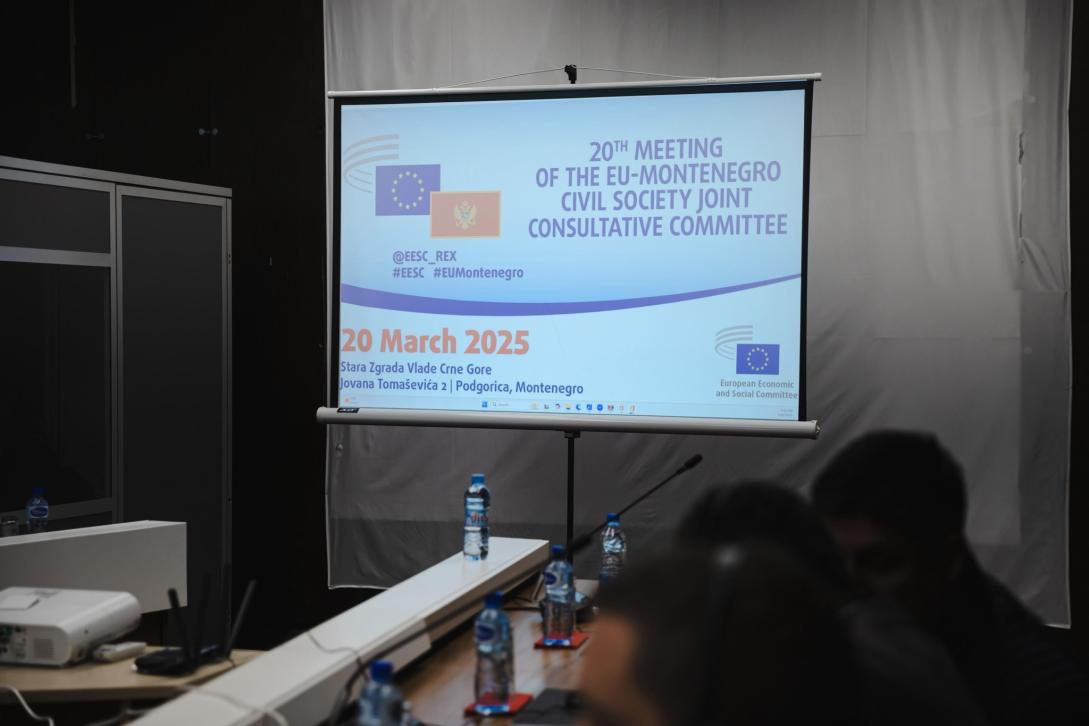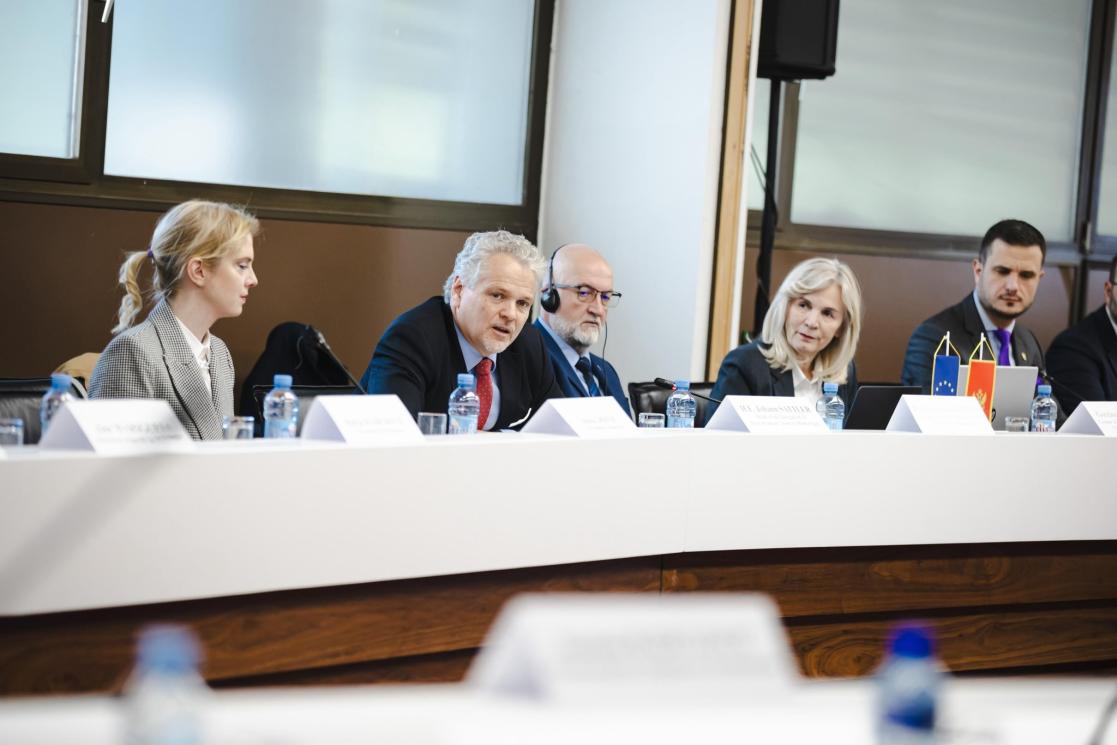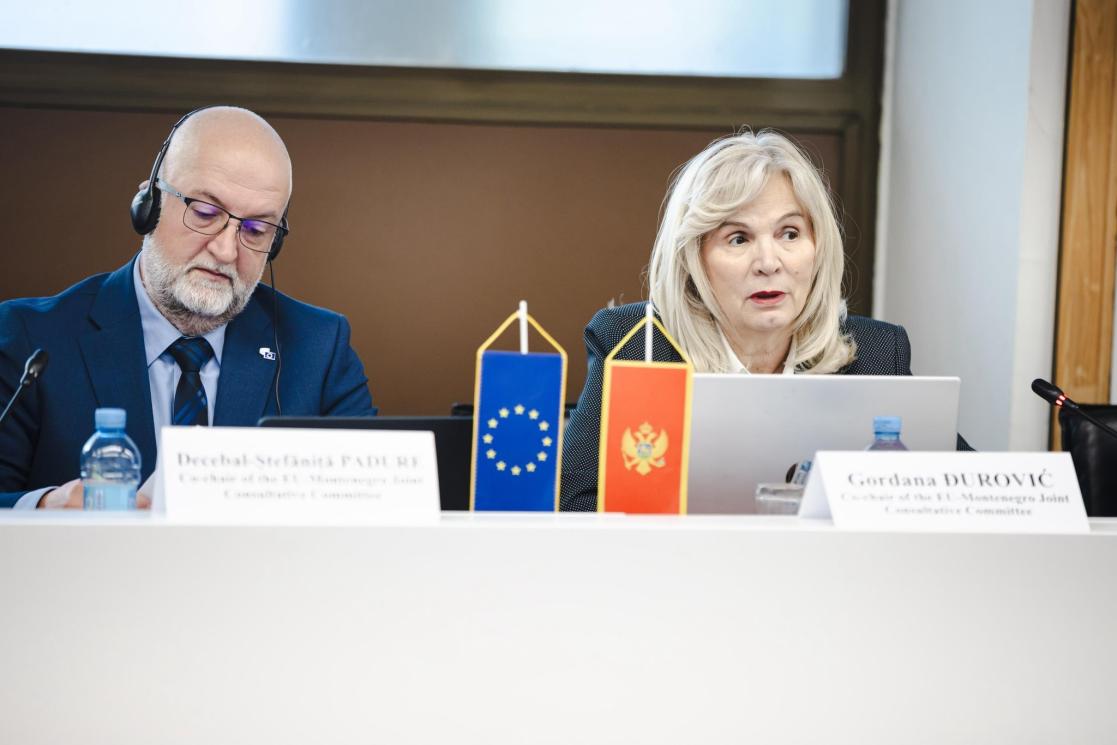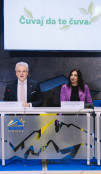Dialogue at all Levels is Key to the Negotiation Process

"No level of support or goodwill will automatically bring Montenegro into the EU. The country must make an effort. Let this committee serve as a reminder that EU accession is a shared responsibility—one that involves all stakeholders, from trade unions and business associations to non-governmental organisations," said the Ambassador of the EU to Montenegro, Johann Sattler, during his opening remarks at the Joint Consultative Committee (JCC) on civil society between the European Union and Montenegro.
Sattler emphasised that Montenegro has the opportunity to make rapid progress towards EU membership. He highlighted that this aligns with the EU’s strong commitment to advancing and supporting the full integration of the entire Western Balkans region.
"It is essential that we continue to make efforts to ensure that this opportunity is not missed, together with our partners from civil society, " Sattler concluded.

Copyright: EUD
Co-chair of the JCC from the European side, Decebal-Ștefăniță Padure, stated that the 20th meeting of the JCC marks a significant milestone in the relationship between EU civil society and Montenegro.
He expressed his satisfaction that, during his mandate, the President of the European Economic and Social Committee (EESC), Oliver Röpke, and the Montenegrin Minister for European Affairs, Maida Gorčević, have provided full support and promoted the work of the JCC.
"President Röpke and Montenegrin Prime Minister Milojko Spajić have been strong supporters of the Candidate Countries for Enlargement initiative, which allows all JCC members and representatives of organised civil society from Montenegro and other candidate countries to participate in the work of the European Economic and Social Committee. We are pleased to announce that this pilot project will continue in 2025, and we hope beyond," Padure said.
According to Padure, civil society must be included in every step of the accession process and implementing reforms, serving as a bridge between citizens and the authorities.
"The engagement of civil society enhances the legitimacy and sustainability of the integration process. Their contribution is particularly important in the work of the negotiating structure, especially regarding the activities of working groups in charge of negotiations and the preparation of key negotiation documents from the very beginning of the accession process," said Montenegro’s Chief Negotiator with the European Union, Predrag Zenović.
He added that civil society plays a crucial role in promoting transparency, accountability, and inclusivity on Montenegro's path towards the EU.
Zenović emphasised that the Government is taking the European Commission's latest Montenegro Report seriously and referred to the recently adopted Action Plan, which aims to address key recommendations across all negotiation chapters and meet the required obligations by the end of 2026.

Copyright: EUD
"Although the timeframe for achieving this ambitious goal is limited, Montenegro must mobilise all its resources—within the government, parliament, and judiciary—to strengthen political dialogue between key stakeholders, as well as dialogue with civil society, so that the successful completion of accession negotiations leads the country towards full EU membership," said the co-chair of the Joint Consultative Committee from the Montenegrin side, Prof. Dr Gordana Đurović. She reiterated that Montenegro remains firmly committed to becoming the EU’s 28th member state by 2028.
The Joint Consultative Committee on Civil Society between the EU and Montenegro (JCC) is one of the bodies established under the Stabilisation and Association Agreement between the European Union and Montenegro. It enables civil society organisations from both sides to monitor Montenegro’s progress towards EU membership and adopt recommendations addressed to the Montenegrin Government and EU institutions. The JCC is comprised of twelve members, with six representatives each from the EESC (European Economic and Social Committee) and Montenegrin civil society.
Article source: ME4EU





